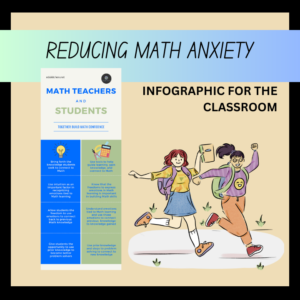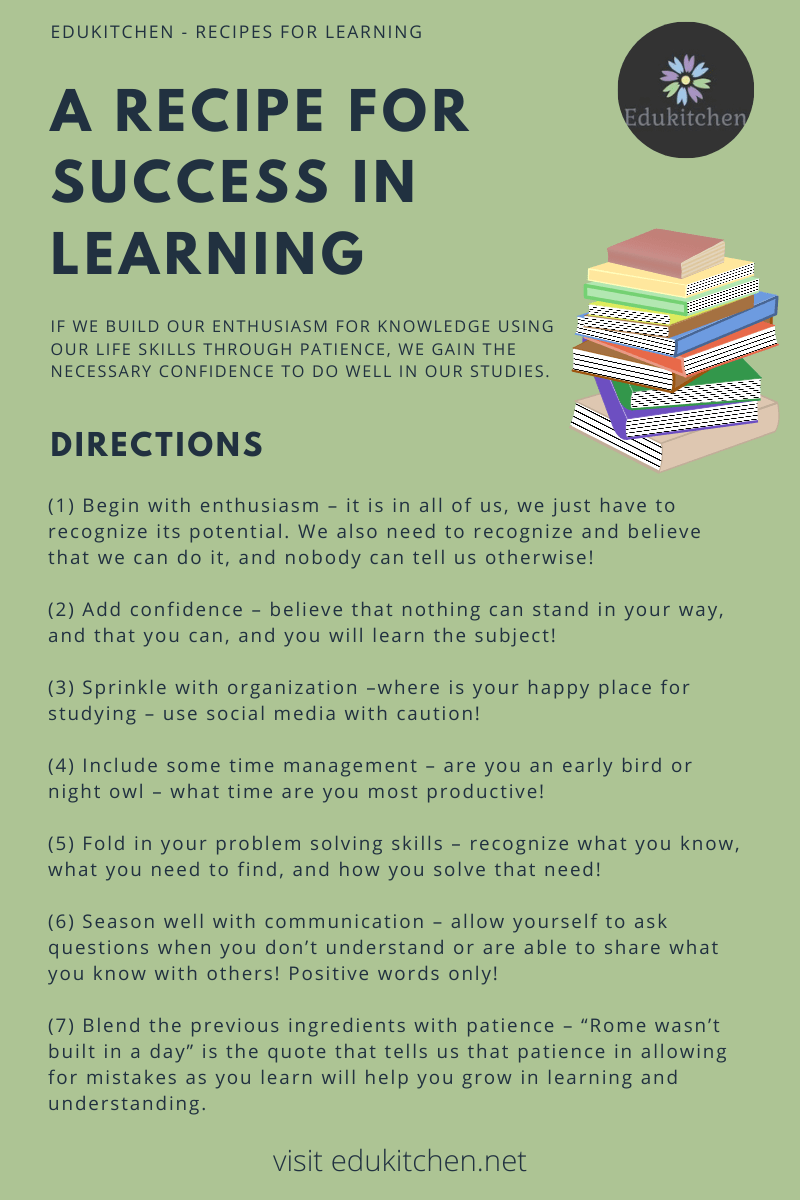In this article, we’ll explore 5 ways to support children struggling with math anxiety, creating a foundation for success and a love for learning.
Math anxiety is a common challenge that can affect a child’s confidence and academic performance. For many children, the fear of making mistakes or feeling overwhelmed by numbers can create a mental block, making math feel more intimidating than it needs to be.

As a parent or teacher, understanding and addressing math anxiety is essential to helping children develop a positive relationship with the subject. With the right strategies, you can empower them to overcome their fears and build both their skills and confidence.
We believe that math anxiety is a real emotion many children face when learning and how the effects of math anxiety can last a life time if not treated.

Sign up below to get your copy of this infographic that shows how to approach learning math in the classroom.
Click to view this and other selections of digital products
Teaching Mastery of Math Skills
This blog contains affiliate links to highlighted websites and/or resources. By clicking on the link and making a purchase we may earn a small commission at no extra cost to you. Click here for full disclosure.
Math anxiety rises when children are experiencing gaps in their educational learning. By ensuring they have access to math skills drills as warm-ups, cool-downs, or extra practices during any math lesson, will help boost confidence by having them master essential math skills.
Mastering Essential Math Skills by Richard, W. Fisher allows for children to use these drills, along with video guides, as a way of understanding where gaps in their learning may exist.
Consider using these types of skill sets either in the classroom or at home to help students with their confidence in math, whereby reducing math anxiety.

To see more from Richard W. Fisher, consider following him, as we have done, on Amazon!
Math Anxiety Video
The effects math anxiety can have on children can lead them to believe that math is a hard subject, not worth their time.
Mistakes are a part of everyday life. So then why do mistakes in the math lead to anxiety in children?
Keep reading to see how we look at ways parents can help their children to overcome math anxiety in the classroom.
Watch our video below to see how we look at ways teachers and students can work to overcome math anxiety in the classroom and how homeschooling parents can use the same strategies to help their children at home.
If you enjoyed this video, please like it, and subscribe to our YouTube channel: The ETI Academy.
Math has over time developed a reputation for being a subject only “smart” people enjoy. The stigma of not being able to answer questions in math may begin to convince children that they are not “smart”.
3 Ways to Support Children Struggling with Math Anxiety
Both parents as teachers and their children as students play an important role in the learning process. Here are some essential ways teachers and students can make learning easier for everyone, and help reduce math anxiety.
I. Create A Safe Learning Environment
Teachers and students can help to create a safe learning environment. Both can encourage others to share their thoughts, and help to correct any mistakes with kind words.

Teachers can engage students more when they help them recognize their previous knowledge about the subject. By doing this, teachers allow students to become more confident in their abilities.
I.a) Provide Special Learning Tools
Learning to use a calculator in Math has now become part of the standard Math curriculums worldwide. Dyscalculator is a free online calculator that allows its users to see and hear the numbers and operations they use when solving Math problems, allowing for greater flexibility in learning.
This calculator is a great starting point for teaching students how to visualize numbers on a calculator. The Dyscalculator is especially helpful for students who have dyscalculia, meaning an inability to calculate numbers.

Click to download Dyscalculator for IOS
Click to download Dyscalculator for Android
This calculator is a great starting point for teaching students how to visualize numbers on a calculator. The Dyscalculator is especially helpful for students who have dyscalculia, meaning an inability to calculate numbers.
II. Introduce A ‘Positive Attitudes Only’ Policy
While some teachers don’t like to admit it, the honest truth is that students first taste of liking or not liking math really does depend on their teacher’s attitude and approach towards building connections between the students and the subject.
If students feels like the teacher is not really connected with how students learn, they may withdraw from participating.

Students may see it as a weakness if they can’t match the intelligence of their teacher, and so they may feel like the subject is too hard.
If the teacher is enthusiastic about sharing what they know, building shared experiences with math, and allowing students to share in the ways ideas are presented, then teachers will greatly influence the student in wanting to learn more.
III. Acknowledge That Word Choice Is Key!
Teachers need to respond to negative attitudes students display by choosing their words carefully. Teachers need not dismiss that student with a negative attitude as an uncaring student and move on to another student.

Instead, teachers should focus on that student as one that is waiting to be reassured that they actually know more than what they think they do.
IV. Recognize Mistakes Are Opportunities To Learn
Students should not be made to feel incompetent when they make a mistake with their answers. Instead, they should be guided by the teacher or other students in figuring out where they went wrong.

Teachers need to be transparent with the students in admitting that mistakes they make are a learning opportunity.
Teachers may through unconscious comments give students the impression that they themselves aren’t really good at math. Teacher efficacy is very important for helping students build their own efficacy towards learning math.
V. Teacher Enthusiasm Equals Student Confidence

When teachers project their enthusiasm for answering math questions, students will then feel confident in their abilities to answer the questions themselves.
Related Topics
Check out our other articles related to math teaching and learning.
- Math Rubrics for the Homeschool Classroom
- Teaching Math as a Language to Children
- Why Math Can Be Really Hard for Children
- Tips to Problem Solving in Math for Homeschool Learning
- 5 Ways to Improve Math Skills in Children
- Make Learning Fractions Fun With our Fraction Templates
Join Our Newsletter Community Today!

Final Thoughts..
These five recommendations are just some of the ways teachers and students can work together to build math confidence.
It is important to recognize the values of emotions when it comes to learning, especially in the math classroom, where the pressure to always find the right answers may be hard for some students.
Check out our fun poster about Pi day, and tell us what you think in the comments below! Get access to this poster in our Canva library of resources!

When teachers work together with students to use their emotions as a starting point, then the focus can shift to previous knowledge gained. Why it is important to focus on previous knowledge?
First it brings more positive emotions, and second, it helps build further knowledge.
Share Your Thoughts
Leave us a comment below, share your thoughts on this article, and let us know whether you agree that mistakes in math are a good learning opportunity?


